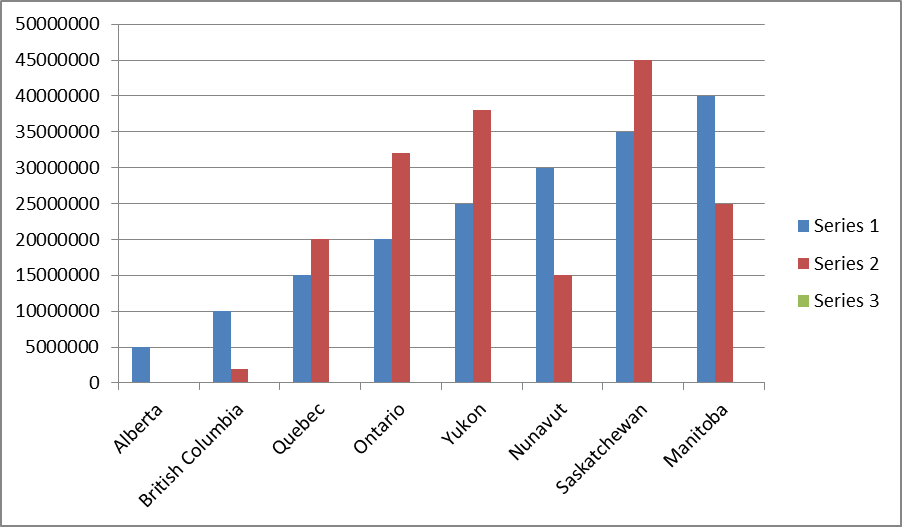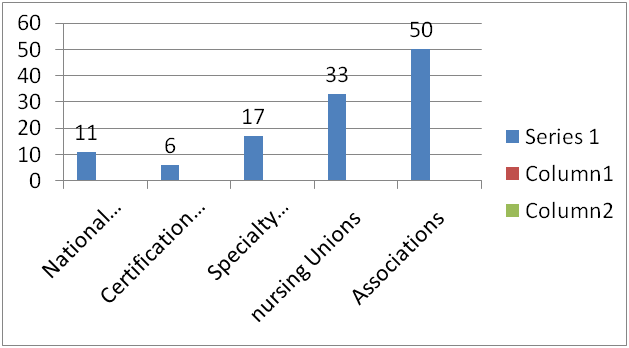Conference Series welcomes you to “5th World Nursing Education & Nursing Practice” during December 04-05, 2020 in Toronto, Canada.
Conference Series LLC Ltd deals with a meeting course of action of 1000+ Global Events thorough of 300+ Conferences, 500+ Upcoming and Previous Symposiums and Workshops in USA, Europe and Asia with sponsorship from 1000 more sensible social requests and disseminates 700+ Open get to journals which contains more than 30000 unmistakable personalities, reputed specialists as article board people.
Nursing Practitioner 2020 conference in Toronto is one of the largest international meetings on nursing education and nursing practice.The theme of our conference is based on ''Leading Innovation for Better Nursing and Global Health Care" With more than 100 advanced practice nurses such as nurse practitioners, clinical nurse specialists, nurse anaesthetists, nurse midwives, and nurse consultants, along with researchers, educators, administrators, policy makers and students expected to attend the conference. Nursing Practitioner 2020 conference promises to be an exciting and rewarding opportunity to learn together.
2020 Named as “Year of the Nurse” Endorsed by World Health Organization (W.H.O) in recognition of Florence Nightingale’s 200th birthday. We are honoured to host high-profile keynote speakers from around the world as well as many concurrent oral and poster presentations on key health issues and advances in healthcare from conference participants.
Nursing Practitioner 2020 is one of the Nursing meetings which will be visited by all the prestigious Nurses, Nurse Practitioner, Registered Nurses, postgraduates, affiliations, Healthcare Doctors, and Healthcare specialists under a solitary rooftop. Nursing Practitioner 2020 will help in frameworks organization, B2B teaming up amidst specialists and academicians. We have dealt with various compelling Nursing events and Healthcare gatherings and develop incredible relations bringing the researchers and associations together.
Why to attend?
Networking – participating in nursing conferences gives you a way to meet, interact with, and make contacts with other experts in your specialty area. Most conferences will have authors, researchers, or clinicians who are recognized experts in their field. Many times you will get a chance to interact with these individuals in a question and answer format. This means you will have a real-time opportunity to have your questions answered by those with a proven track record. Furthermore, you can network with nurses from other locations throughout the country to see how they approach similar dilemmas you face and develop new professional relationships. Before you attend the conference it’s a good idea to create your own business cards so you can easily share your contact information to others.
Why Toronto?
Toronto is the provincial capital of Ontario and the most populous city in Canada, with a population of 2,731,571 as of 2016. Current to 2016, the Toronto census metropolitan area (CMA), of which the majority is within the Greater Toronto Area (GTA), held a population of 5,928,040, making it Canada's most populous CMA. The city is the anchor of the Golden Horseshoe, an urban agglomeration of 9,245,438 people (as of 2016) surrounding the western end of Lake Ontario. Toronto is an international centre of business, finance, arts, and culture, and is recognized as one of the most multicultural and cosmopolitan cities in the world.
Target Audience:
Nurses/students, Nursing Researchers, Nursing Faculty, Medical Colleges, Nursing & Midwifery Associations and Societies, Business Entrepreneurs, Training Institutes, Software Developing Companies, Manufacturing Medical Devices Companies, Pharmaceutical Companies, Nurses, Physicians, Assistants, Advanced Practice Nurses, Clinical Research Nurses, and Social Workers with a focus on nursing education.
Scope & Importance:
The scope of Nursing Education encompasses clinical practice, education, consultation, research, and administration. Nursing is focused on the care of individuals, families, groups, and communities at risk for or with a diagnosis of diseases. The Nursing Society maintains that nurses involved in patient care have the responsibility to develop and demonstrate knowledge and skills that display competence in the field. Nurses plays an integral role in the administration of antineoplastic agents and are responsible for safe drug handling; evaluation of laboratory data; calculation of drug dosages on the basis of body surface area; insertion of intravenous lines or accessing central venous devices; continuous and time intensive monitoring to address potential adverse reactions or drug interactions; and screening patients for inclusion in available research trials or protocols. In Nursing Education arena, the nurses need to have an understanding of Nursing Care and Health Care. They are also responsible for extensive symptom management, patient education and the submission process for clinical trials or research protocols.
Track-01: Nursing Specialities
In the modern world, there are a number of nursing specialities. Professional organizations or certifying boards issue voluntary certification in many of these specialties. Emergency Nursing, Cardiac Nursing, Ambulatory Care Nursing, Diabetes Nursing, Dental Nursing, Geriatric Nursing, Critical Care Nursing, Neonatal Nursing, Pediatric Nursing, Clinical Nursing, Community Health Nursing, Orthopaedic Nursing, Surgical Nursing, Perinatal Nursing, Wound Care
Track-02: Nursing Care Plan
A care plan includes client assessment, medical results and diagnostic reports. This is the first step in order to be able to create a care plan. In particular client assessment is related to the following areas and abilities: physical, emotional, sexual, psychosocial, cultural, spiritual/transpersonal, cognitive, functional, age related, economic and environmental. Information in this area can be subjective and objective. Expected patient outcomes are outlined. These may be long and short term. Nursing interventions are documented in the care plan. Rationale for interventions in order to be evidence based care. Evaluation. This documents the outcome of nursing interventions A computerised nursing care plan is a digital way of writing the care plan, compared to handwritten. Computerised nursing care plans are an essential element of the nursing process. Computerised nursing care plans have increased documentation of signs and symptoms, associated factors and nursing interventions. Using electronic devices, nursing care plans became more accurate, accessible, easier completed and easier edited, in comparison with handwritten and pre-printed care plans
Track-03: Nursing Education
The purpose of Nursing Education is to enhance the development of the nursing profession by educating the nurses in their specific area. The explanation for nursing is particularly conducted through implicit knowledge. We examined that the professional improvement of the nursing career in Europe requires an intelligible and well-explained nurse aspect. This certain intent of professional education for nursing does not require the total figure of assumed idea. The global development needs the acceptance of an experienced status by involving together. This signifies that the appreciations of the demand for a more clearly expressed nursing role are incorporated during work experience. This confirms about the urgency and value of role repetition and interactions with an authorized group as part of the educational procedure. This is the unique courses of medical education which contents both theoretical and practical training provided to nurses for the purpose to prepare them as nursing care professionals.
Track-04: Nursing Informatics
Nursing Informatics is the specialty that integrates nursing science with multiple information management and analytical sciences to identify, define, manage, and communicate data, information, knowledge, and wisdom in nursing practice. It supports nurses, consumers, patients, the interprofessional healthcare team, and other stakeholders in their decision-making in all roles and settings to achieve desired outcomes. This support is accomplished through the use of information structures, information processes, and information technology.
Track-05: Nursing Management
Nursing Management consists of the performance of the leadership functions of governance and decision-making within organizations employing nurses. It includes processes common to all management like planning, organizing, staffing, directing and controlling. It is common for registered nurses to seek additional education to earn a Master of Science in nursing or Doctor of nursing practice to prepare for leadership roles within nursing. Management positions increasingly require candidates to hold an advanced Degree in nursing.
Track-06: Health Diversity
Health Diversity is turning into a key word in health care. Hospitals and health care systems are specializing in providing care that addresses the variety of their patient populations. Hospitals are also operating to extend the variety of their leadership team, board employees and building a culture of diversity and inclusion. Diversity in the nursing field is essential because it provides opportunities to administer quality care to patients.
Track-07: Advanced Technologies in Nursing Care
Because of trend setting innovations, Registered Nurses and Nurse Practitioners has incremented their work process, constraining human mistakes. Major cutting-edge innovations are consolidated in best medical clinics and medicinal services focuses and henceforth it is less testing making it less demanding for the attendants. Some of them are Electronic Records, GPS Following, Real-Time Location Services, Upgraded Diagnostic Devices, Medication Delivery, Lifting Patients Effortlessly, Wireless Communication Systems
Track-08: Nursing Research
Nursing Research is a research that provides evidence used to support nursing practices. Nurses use research to provide evidence-based care that promotes quality health outcomes for individuals, families, communities and health care systems. Nurses conduct research use research in practice and teach about research. Nursing Research mainly involves both quantitative & qualitative procedures.
Track-09: Health Care in Nursing
Nursing is a health care profession that focuses on the care of individuals and their families to help them recover from illness and maintain optimal health and quality of life. Nurses are distinct from other healthcare providers as they have a wide scope of practice and approach to medical care. They play an integral role in promoting health, preventing illness, and caring for all individuals, including those who are disabled or are physically or mentally ill. The basic concepts are Safety in Health Care Facilities, Care of patient unit, Basic Client Care, Advancement in Health Care, Health Care Communications, Primary Health, Health Promotion and Protection
Track-10: Nursing Law
According to state and federal laws, Legal nursing is the medical department based on the legal authorization which provides license to nursing practice. In legal nursing, there are ethical principles that arise for the nurses who work in the correctional setting with respect for Persons beneficence, No maleficence, Justice, Veracity, and Fidelity. They usually do their job in legal issues by recording the professional problems and figures out the medical etymology by consulting them personally.

Leading World Doctors, Registered Nurses, Professors, Research Fellows and many more from leading universities, companies and medical research institutions, hospitals sharing their novel researches in the arena of Nursing, Healthcare & Medicine.
Major universities and Health care centers in Toronto
-
Ryerson University
-
Humber College
-
Trent University
-
Cambrian College
-
Lambton College
-
Royal Health Care Center
-
Dalhousie Medical Care
Companies Associated with Nursing
-
Augsburg Lutheran Home and Village
-
Bailey-Boushay House
-
Catholic Health Services
-
Cedar Community, West Bend, Wis.
-
Ecumen - senior housing and aging services solutions in Minnesota, Wisconsin, North Dakota and Idaho plus consulting nationally.
-
Emeritus Assisted Living - based in Seattle, Washington
-
HCR Manor Care
-
Kindred Healthcare - operates healthcare centers and skilled rehabilitation centers as well as LTAC hospitals.
-
Lillian Booth Actors Home
-
St. Camillus Health Center
-
The Evangelical Lutheran Good Samaritan Society
-
Twelve Oaks Lodge
-
Wesley Woods

Nursing Societies (CANADA)
-
Academy of Medical-Surgical Nurses
-
Academy of Neonatal Nursing
-
Air & Surface Transport Nurses Association
-
Alliance for Psychosocial Nursing
-
Canadian Association of Moderate Sedation Nurses
-
Canadian Association of Nurse Life Care Planners
-
Canadian Academy of Nursing
-
Canadian Assisted Living Nurses Association
-
Canadian Association for the History of Nursing
-
Canadian Association of Critical Care Nurses
-
Canadian Association of Legal Nurse Consultants
-
Canadian Association of Managed Care Nurses
-
Canadian Association of Neuroscience Nurses
-
Canadian Association of Nurse Anesthetists
-
Canadian Association of Nurse Attorneys
-
Canadian Association of Nurse Life Care Planners
-
Canadian Association of Occupational Health Nurses
-
Canadian Association of Spinal Cord Injury Nurses
-
Canadian College Health Association
-
Canadian College of Nurse Midwives
-
Canadian College of Nurse Practitioners


